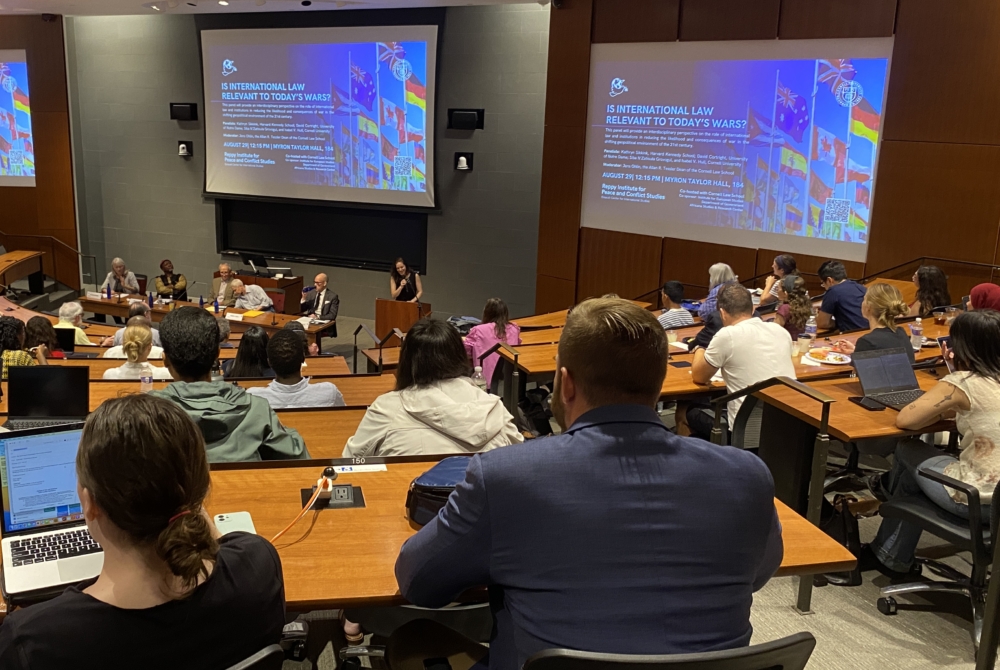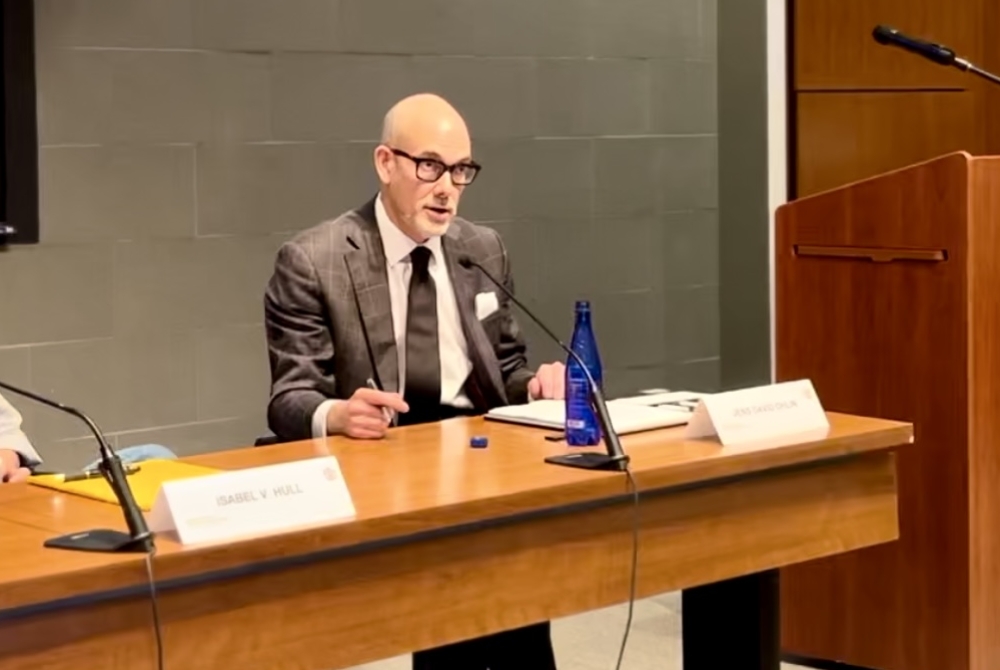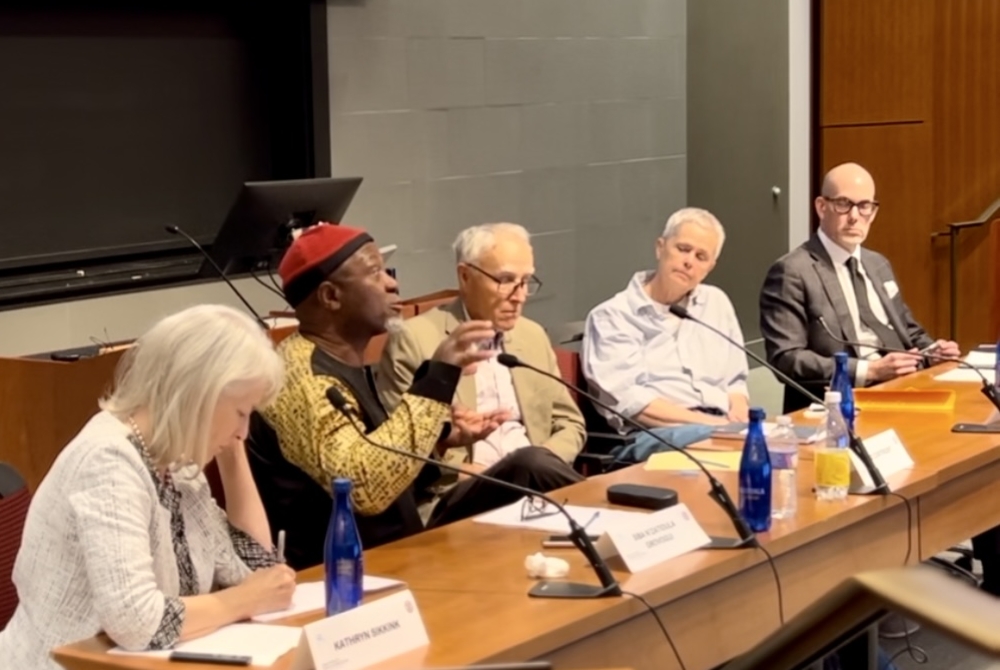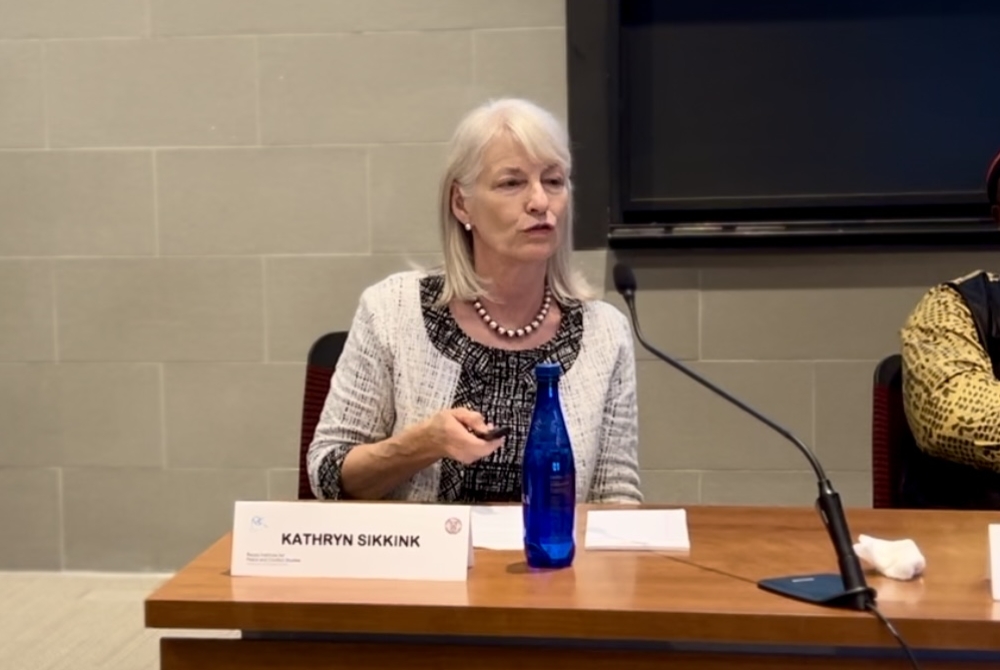This website uses cookies
We use cookies to ensure that we give you the best experience on our website. If you continue to use this site we will assume that you are happy with it.
Cornell Law School recently hosted a compelling panel discussion titled “Is International Law Relevant to Today’s Wars?” that was moderated by Jens Ohlin, the Allan R. Tessler Dean and Professor of Law. The event, held on August 29 in the Elizabeth Landis Auditorium of Myron Taylor Hall, brought together distinguished scholars to explore the role of international law in contemporary armed conflicts. The discussion was organized by the Cornell Einaudi Center’s Reppy Institute for Peace and Conflict Studies.
Ohlin, whose scholarly work intersects criminal law, criminal procedure, public international law, and the laws of war, guided the conversation with a series of thought-provoking questions aimed at uncovering the complexities of international law’s impact on modern warfare.
The panel featured an impressive lineup of experts, including Kathryn Sikkink, the Ryan Family Professor of Human Rights Policy at the Harvard Kennedy School; Siba N’Zatioula Grovogui, a professor in Africana Studies at Cornell; Isabel Hull, the John Stambaugh Professor of History Emerita at Cornell; and David Cortright, professor emeritus of the practice at the Keough School of Global Affairs at the University of Notre Dame.

Cornell Law School’s Panel on Relevance of International Law in Modern Conflicts

Jens David Ohlin, the Allan R. Tessler Dean and Professor of Law

Panel speakers (L to R): Kathryn Sikkink, the Ryan Family Professor of Human Rights Policy at the Harvard Kennedy School; Siba N’Zatioula Grovogui, a professor in Africana Studies at Cornell; David Cortright, professor emeritus of the practice at the Keough School of Global Affairs at the University of Notre Dame; Isabel Hull, the John Stambaugh Professor of History Emerita at Cornell and Jens Ohlin, the Allan R. Tessler Dean and Professor of Law.

Kathryn Sikkink, the Ryan Family Professor of Human Rights Policy at the Harvard Kennedy School
The discussion began with Ohlin posing a question about the prevalence of armed conflict today compared to the past. This set the stage for a detailed analysis by the panelists, who provided historical and geopolitical context for understanding the current uses and limitations of international law in reducing the likelihood and harms of armed conflict.
Kathryn Sikkink presented data on the fatalities and prevalence of wars, highlighting that while the number of armed conflicts has increased, the fatalities have not necessarily followed the same trend. She emphasized the importance of distinguishing between different types of conflicts, such as interstate wars and civil wars, and the relevance of international law in each context.
Siba Grovogui offered insights into the perception and use of international law in Africa, discussing its dual nature as both a legacy of colonialism and a necessary framework for guiding contemporary international relations. He stressed the importance of making international law more universal and inclusive.
Isabel Hull provided a historical perspective on the prohibition against the use of force, tracing its roots back to the early 19th century and explaining how these norms have evolved over time. She underscored the role of customary law and the practice of states in shaping these prohibitions.
David Cortright discussed the concept of a rules-based international order and the challenges it faces today. He highlighted the importance of the U.N. Charter and other international agreements in maintaining global peace and security, despite the difficulties posed by great power politics.
The panel also addressed the humanization of war through international humanitarian law, debating whether efforts to regulate the conduct of hostilities have made war more humane or simply distracted from the goal of abolishing war altogether. Ohlin facilitated a lively exchange on this topic, encouraging the panelists to consider both the successes and limitations of these legal frameworks.
The event concluded with a Q&A session, where audience members engaged with the panelists on various issues, including the role of international institutions and the challenges of enforcing international law in a multipolar world.